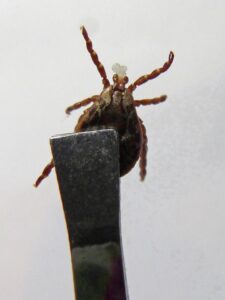If you have found out that your cat is pregnant, then the next step is finding out what you need to do to prepare for the arrival of kittens. You will also need to know what to do to while your pet is in labor, and what after care you will have to provide. Here is our guide to what you need to know about the birth of kittens.
Ahead of the birth
Around a week before the expected arrival of your kittens you should prepare a safe place for your cat to go and labor. This is a cupboard, box or bed where your pet can go to before, during and after labor. An old cardboard box with the side or front cut out will work just fine. Ensure the sides are high enough to keep warmth in and you may want to put her favorite toy or blanket inside for her. That said, cats are notoriously independent and she may not use the space you have prepared for her at all!
If you need to move the kittens away from their mom at any point, then we recommend a blanket with a heating pad or a microwavable bean bag to help keep them warm.
Other things you may need include clean towels, some rubber gloves, sterile scissors and plenty of antiseptic. You may also need to have some strong string or something similar nearby in case you need to tie off any umbilical cords.
We also recommend that you have the telephone numbers of your own veterinary surgery and an emergency out-of- hours service, as just like humans, there is no telling when those babies are going to arrive!
Signs of Labor
Around 62 days into the pregnancy your cat is considered to be ‘full term’. There are a number of signs of early labor that you can look out for, and these include:
- She may start nesting by rearranging or fussing over her bedding
- She may become very restless and pace around the house
- She may become very vocal
- She may experience vaginal discharge
- She may make repeated trips to the litter box without producing anything
Generally cats prefer to labor in private so you will need to keep a very close eye on her to see exactly when and where she starts delivering her kittens! You should watch over her labor as much as possible, and try not to intervene unless absolutely necessary.
The Birthing Process
The birthing stage can last anything from 2 to 24 hours so you may be in for a long haul!
Kittens will usually be born head-first just like human babies, but if they do deliver feet first then there is no cause for alarm. After the first kitten arrives, you can expect subsequent kittens to take between 30 minutes and an hour to deliver.
Intervention during the birth
Any intervention should be kept to a minimum, but sometimes it is necessary for the health of your kittens or you new mommy cat.
All kittens are born in a thin membrane birthing sac, which your cat should remove as soon as her baby has arrived. If she does not do this you will need to gently tear open the sac (do not use a sharp object, it’s fragile so your hands should suffice) as soon as possible to allow the kitten to breathe. You should then clean her mouth and nose and rub her against the grain of her fur with a clean towel. This action will encourage her to breathe alone.
The new mom usually chews through the umbilical cord on her own, but if she doesn’t then you will need to step in and cut it.
You should tie it in two areas off around an inch from the kitten’s body and cut between the ties with the sterilised scissors, crushing it as you do to minimize bleeding. You should then treat the kitten’s end of the cord with a little antiseptic solution. You should ensure that the cord attached to the kitten is short so that your mom cat doesn’t try and chew on it!
After the Birth
Kitten litters usually consist of between four and six babies. If you notice that your cat is straining unproductively for more than two hours then contact your veterinarian immediately.
Once all the Kittens have been born
Once you are confident that all of the kittens have been born and your new mom seems healthy, give her the opportunity to get to know her new babies!
She should start nursing immediately, and hopefully her maternal instincts will kick in to keep her pups safe, warm and well fed. Newborn kittens need to feed within an hour or two of being born. However if this does not happen then you will need to step in as a substitute mom.
Signs that kittens aren’t being properly cared for If the kittens are unhappy and their needs are not being met, they should soon let you know about it!
If they aren’t getting enough food or mom is refusing to nurse then they may try and suck constantly, act restless and whine. You should supplement their milk intake using nursing bottles and supplements that you can purchase at your nearest pet store.
Speak to your veterinarian as soon as possible if it looks like you will need to hand-rear your kittens.
With planning and preparation, the arrival of new kittens doesn’t have to be a stressful experience. We wish you lots of luck with your new extended feline family!



